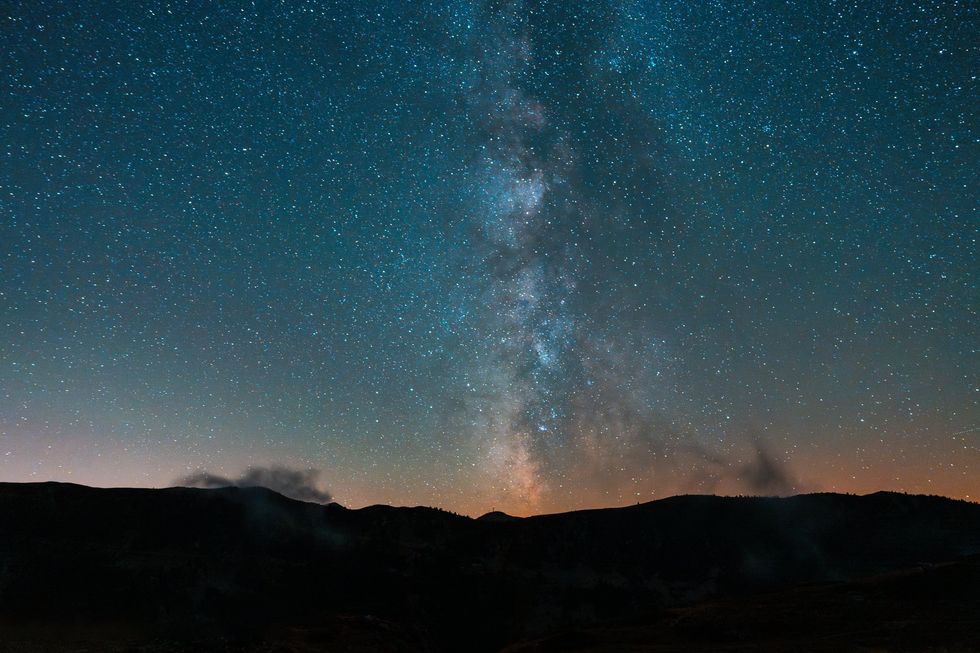Throughout January, a stunning celestial event will unfold as four planets align in the night sky, offering a rare opportunity to witness this cosmic spectacle with the naked eye.
NASA reports that Venus, Mars, Saturn, and Jupiter will be the stars of this planetary display, with these "fab four" forming a striking alignment. For those with telescopes or high-powered binoculars, there’s also the possibility of spotting Uranus and Neptune in the distance.
While the alignment will occur every night throughout the month, the best time to catch the show is just after sunset until 9pm on 21 January, according to the Royal Museums Greenwich.
If the skies are clear enough, you might even glimpse Uranus as a faint speck without any equipment.
As part of their recent campaign investigating the best stargazing locations in the UK, the experts at Select Van Leasing have shared top tips for stargazing enthusiasts hoping to catch a glimpse of the space giants.

Avoid light-polluted areas
"To get the best view of the planets, steer clear of towns or city centres and head to a location free from light pollution. Rural areas or dark sky parks are ideal as they offer clear and unobstructed views of the night sky.
"Our stargazing report revealed that Eryri National Park (Snowdonia) is the best place to stargaze in the UK, followed by Cairngorms National Park, and Northumberland National Park. If you are in or around these areas, you should have a pretty good chance of witnessing the meteor shower."
Plan your route in advance
"If you're heading to a remote or rural area, it's important to plan your route in advance, particularly if you're unfamiliar with the area. Check for any road closures or weather-related disruptions, especially if snow or ice is expected, to ensure a smooth and safe journey.
"Additionally, remote areas often have limited signal, so it's a good idea to inform friends or family of your route. Plan ahead to ensure they know when to check in with you during or after the event."
Check the weather forecast
"It may seem obvious, but clear skies are crucial for stargazing. Be sure to check the weather forecast before heading out, as cloud cover can block your view of the planets and stars. Ideally, aim for a time with minimal cloud cover and little to no moonlight, as the brightness of the moon can wash out the light of the meteors."
Check your vehicle’s weather readiness
"Before hitting the road, ensure your vehicle is ready for winter conditions by checking that your tyres are suitable for icy or snowy roads, and make sure your windscreen wipers, de-icer, and headlights are working properly.
"If the area you're in is heavily affected by snow and ice, it may be safer to avoid driving altogether."
Arrive early
"It can take up to 20 minutes for your eyes to fully adjust to low-light conditions, so make sure you arrive well in advance to give your eyes enough time to adapt to the darkness."
Wear warm layers
"January is typically one of the coldest months of the year, and with The Met Office recently issuing snow and ice weather warnings for large parts of the UK, it's essential to wear plenty of warm layers. Consider preparing hot drinks to take along with you as an extra way to help you stay warm."
Stock your vehicle with winter supplies
"As with any nighttime winter road trip, make sure to keep an emergency kit in your car, including extra blankets and warm clothing, a torch, bottled water, snacks, and phone charging equipment."
Take something to sit on
"If you’re planning to stay for a while, bring blankets, cushions, and camp chairs to sit on while stargazing. This will help avoid straining your neck while looking up at the sky and allow you to comfortably gaze upwards for long periods without discomfort."
Use a star map or stargazing apps
"To make the most of the experience, use a star map or stargazing app to help you identify constellations and other celestial objects to make the most of the opportunity. These tools also make it easier to locate the best areas of the sky for observing the stars and planets. Some recommended apps include: Star Walk, SkySafari 7 Pro, Sky Tonight, and Heavens-Above Pro."
Use car parking areas to stargaze
"Many people may not realise that numerous car parks in rural areas are actually recommended stargazing locations, thanks to their minimal light pollution and spacious, open settings. This makes them ideal for those driving to a designated spot, as you won’t have to venture far from your vehicle to enjoy a perfect view of the sky."
How to join the indy100's free WhatsApp channel
Sign up for our free Indy100 weekly newsletter
Have your say in our news democracy. Click the upvote icon at the top of the page to help raise this article through the indy100 rankings.














